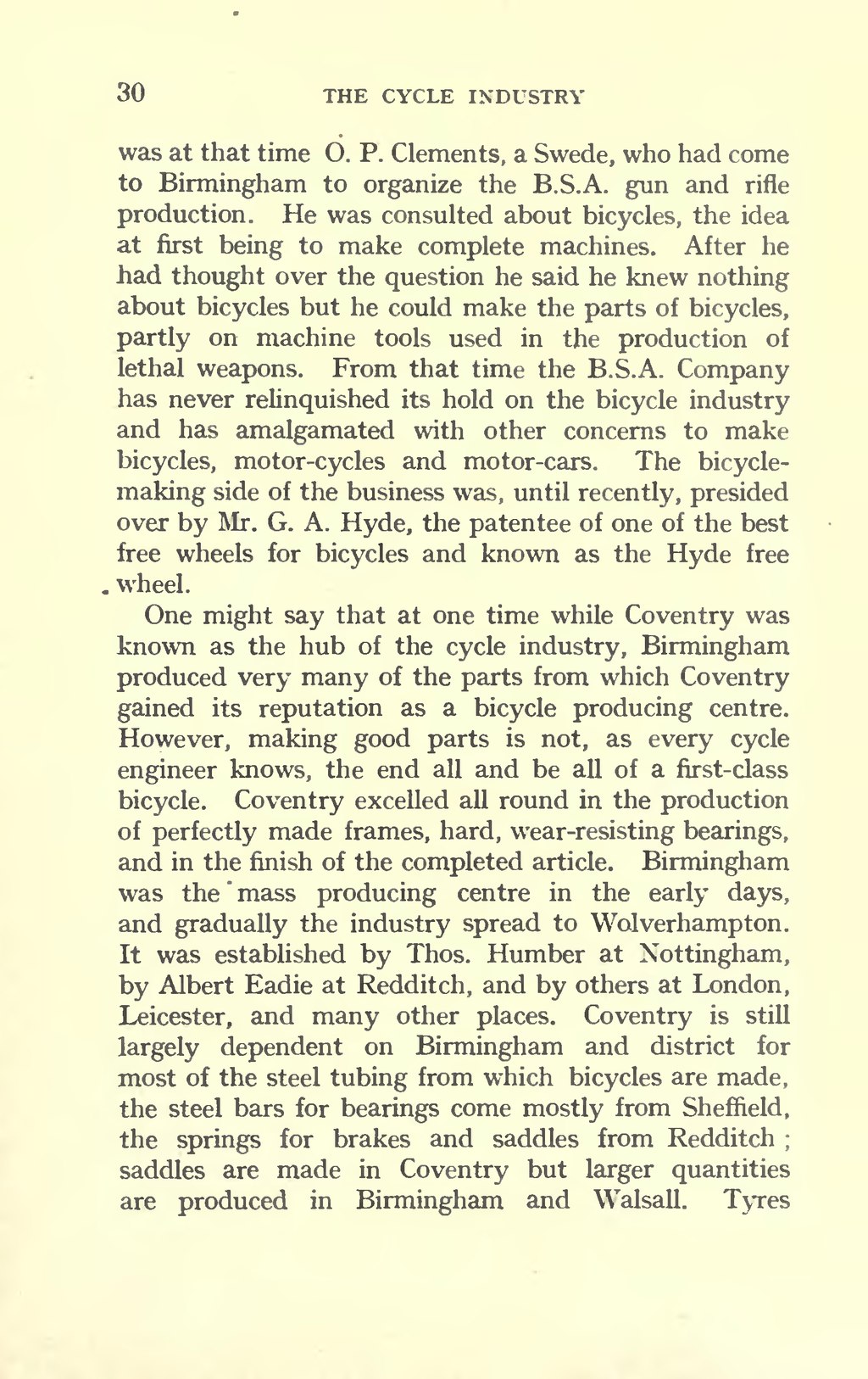was at that time O. P. Clements, a Swede, who had come to Birmingham to organize the B.S.A. gun and rifle production. He was consulted about bicycles, the idea at first being to make complete machines. After he had thought over the question he said he knew nothing about bicycles but he could make the parts of bicycles, partly on machine tools used in the production of lethal weapons. From that time the B.S.A. Company has never relinquished its hold on the bicycle industry and has amalgamated with other concerns to make bicycles, motor-cycles and motor-cars. The bicycle-making side of the business was, until recently, presided over by Mr, G. A. Hyde, the patentee of one of the best free wheels for bicycles and known as the Hyde free wheel.
One might say that at one time while Coventry was known as the hub of the cycle industry, Birmingham produced very many of the parts from which Coventry gained its reputation as a bicycle producing centre. However, making good parts is not, as every cycle engineer knows, the end all and be all of a first-class bicycle. Coventry excelled all round in the production of perfectly made frames, hard, wear-resisting bearings, and in the finish of the completed article. Birmingham was the mass producing centre in the early days, and gradually the industry spread to Wolverhampton. It was established by Thos. Humber at Nottingham, by Albert Eadie at Redditch, and by others at London, Leicester, and many other places. Coventry is still largely dependent on Birmingham and district for most of the steel tubing from which bicycles are made, the steel bars for bearings come mostly from Sheffield, the springs for brakes and saddles from Redditch; saddles are made in Coventry but larger quantities are produced in Birmingham and Walsall. Tyres
